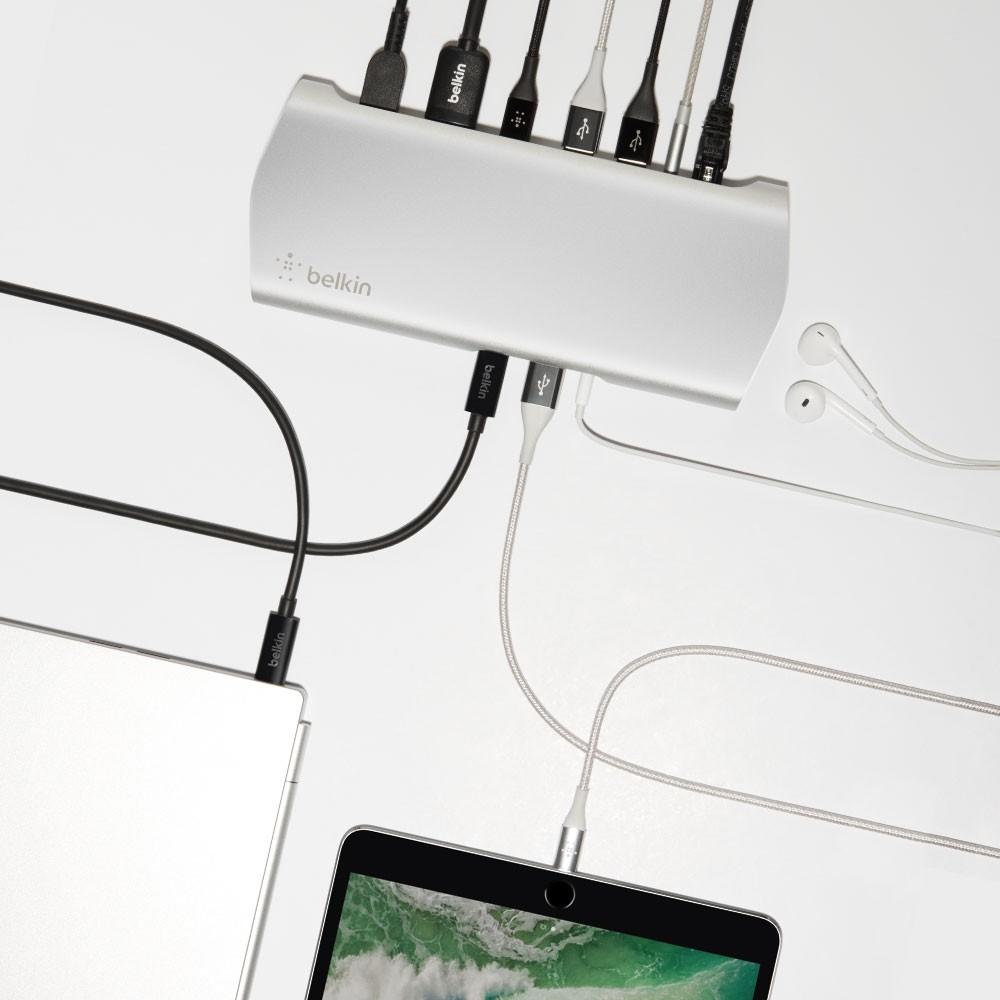

Belkin stepped in after the team formerly known as Rabobank lost their headline sponsor.
#BELKIN USB MANAGER FOR MAC PRO#
īetween May 2013 and the end of the 2014 season, Belkin sponsored a Dutch professional cycling team, Belkin Pro Cycling Team. In 2016, Phyn, a home water management tech brand, was created by Belkin in a joint venture with water solutions company Uponor. In 2013, Belkin purchased Linksys, a Cisco network hardware company that specializes in wireless connectivity. WeMo was launched in 2012 to produce smart home products that can be synced with smart devices such as Apple Homekit, Nest and Google Home. Belkin made efficiency upgrades, including solar panels, EV charging stations in company parking lots, and motion sensor lighting in offices and distribution centers. In 2009, Belkin pledged to reduce 25 percent of the company's worldwide electricity consumption by 2017, and by 2018, Belkin had 37 percent reduction worldwide. The branding team named the human figure PIP as an acronym for People-Inspired Products. At Consumer Electronics Show in 2012, Belkin debuted a new logo that contains a human figure made with dots that match the dot of the "i" in Belkin.

The company has offices in Russia, Indonesia, Macau, Taiwan, Vietnam, China, Italy, Thailand, Philippines, Hong Kong, Japan, Korea, Brazil, Singapore, Malaysia, Greece, India, Dubai, Norway, Sweden, New Zealand, Mexico, Denmark, Spain, France, Netherlands, Germany, United Kingdom, Canada, and Australia.įrom its founding in 1983 until 2012, the Belkin logo was simply the name Belkin. Previously, the head offices were in the neighboring southern California cities of Hawthorne and Compton. Corporate affairs īelkin is headquartered in Playa Vista, California. Senior Vice President and General Manager Steve Malony was announced as the new CEO. In January 2021, Pipkin stepped down from his role as CEO of Belkin to become the Executive Chairman of the Board. In September 2018, Belkin was purchased by Foxconn, a Taiwanese multinational electronics firm and the largest provider of electronics manufacturing services, for $886 million. In 2016, Belkin, in a joint venture with water solutions company Uponor, formed Phyn, a home water management tech brand. In March 2013, Belkin acquired Cisco Systems' Home Networking Business Unit, including the Linksys brand and product line. In 2012, Belkin launched the WeMo brand to produce smart home products. In 2008, Belkin pivoted toward smartphone usage and designed new products for the smartphone accessory market. Pipkin bought back those shares within the following years. īelkin was privately run until 2002 when Summit Partners, a private equity firm, purchased a small stake in the company. In the early 2000s, Belkin expanded its product line to accommodate smartphone and tablet users with hardware accessories including chargers and connector cables. In the 1990s, Belkin added surge protectors and USB storage devices to its product line. manufacturing, Belkin began contracting Asian factories to increase production for a global market. Belkin performed its cable manufacturing in the United States, which gave the company a fast turnaround for customers. On January 1, 1983, Pipkin moved into a professional workplace and hired his first full-time employees. In 1982, Pipkin left his university studies to focus on expanding the business. As Pipkin's cable connector sales grew in Southern California, he recruited assembly help from his machinist father, brother and a handful of friends. Pipkin began to sell computer-to-printer cables to local computer shops. In the early 1980s, Chet Pipkin founded Belkin in his parents' home in Hawthorne, California, to manufacture computer cables for the new personal computer and tech accessory market. While attending UCLA, Chet Pipkin, who was spending his time in local computer shops, saw the growing need for cables that would connect personal computers to new printers being released for home use.


 0 kommentar(er)
0 kommentar(er)
